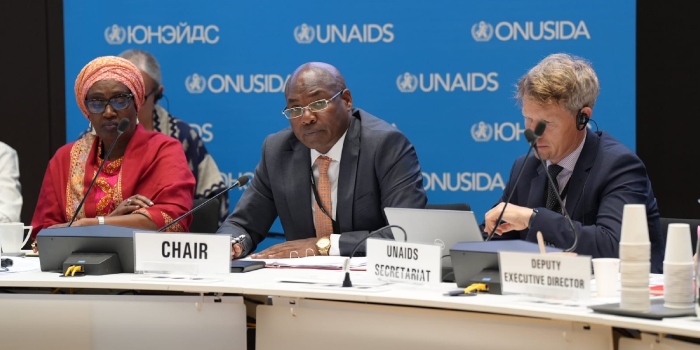The Joint United Nations Programme on HIV/AIDS (UNAIDS) has issued a warning to African governments, urging them to increase domestic investment in HIV responses amid a historic global funding crisis that threatens to reverse decades of progress.
According to UNAIDS’ 2025 Global AIDS report, eastern and southern Africa, home to over half of the world’s HIV cases, has made major strides over the past decade, reducing new HIV infections by 56% and AIDS-related deaths by 59% since 2010.
However, this progress is now at risk due to abrupt international funding cuts, including reductions from the United States President’s Emergency Plan for AIDS Relief (PEPFAR).
UNAIDS estimates that without urgent corrective action, an additional 6 million HIV infections and 4 million AIDS-related deaths could occur globally between 2025 and 2029.
In sub-Saharan Africa alone, 61% of AIDS-related deaths in 2024 occurred, highlighting the region's vulnerability.
The report reveals that although 85% of people living with HIV in the region were receiving antiretroviral therapy by the end of 2024, treatment coverage among children and key populations lags dangerously behind.
Severe disruptions have affected prevention services; over 60% of women-led HIV organisations lost funding in early 2025.
“This is not just a funding gap, it’s a ticking time bomb. We have seen services vanish overnight. Funding cuts sent health workers home. And people, especially children and key populations, are being pushed out of care,” warned UNAIDS Executive Director Winnie Byanyima.
Eastern and southern Africa received $9.3 billion for the HIV response in 2024, a 6% drop since 2020.
Alarmingly, domestic sources provided only 34% of that funding, and only 20% excluding South Africa.
Many countries in the region allocate as little as 8–12% of HIV funding to prevention, further compounding the risks.
UNAIDS praised South Africa’s example, which now funds 77% of its own AIDS response and plans further budget increases.
Seven African countries; Botswana, Eswatini, Lesotho, Namibia, Rwanda, Zambia, and Zimbabwe, have already achieved the 95–95–95 targets: ensuring 95% of people living with HIV know their status, 95% of those are on treatment, and 95% of those on treatment are virally suppressed.
However, Byanyima stressed that domestic efforts alone cannot fill the global funding gap, there is a need for global solidarity.
“We now need global solidarity to match the courage and resilience shown by communities and governments,” she said.
The report recommends that African nations adopt sustainable financing mechanisms, including social contracting and domestic resource mobilisation.
“There is still time to transform this crisis into an opportunity. Together, we can still end AIDS as a public health threat by 2030, if we act with urgency, unity, and unwavering commitment,” Byanyima said.
It also urges international partners to step up, especially as punitive laws criminalising key populations in several countries further complicate access to HIV services.
UNAIDS’ warning comes just ahead of the Scientific AIDS Conference IAS 2025 in Kigali, Rwanda, where governments and global health leaders are expected to chart the path forward.

